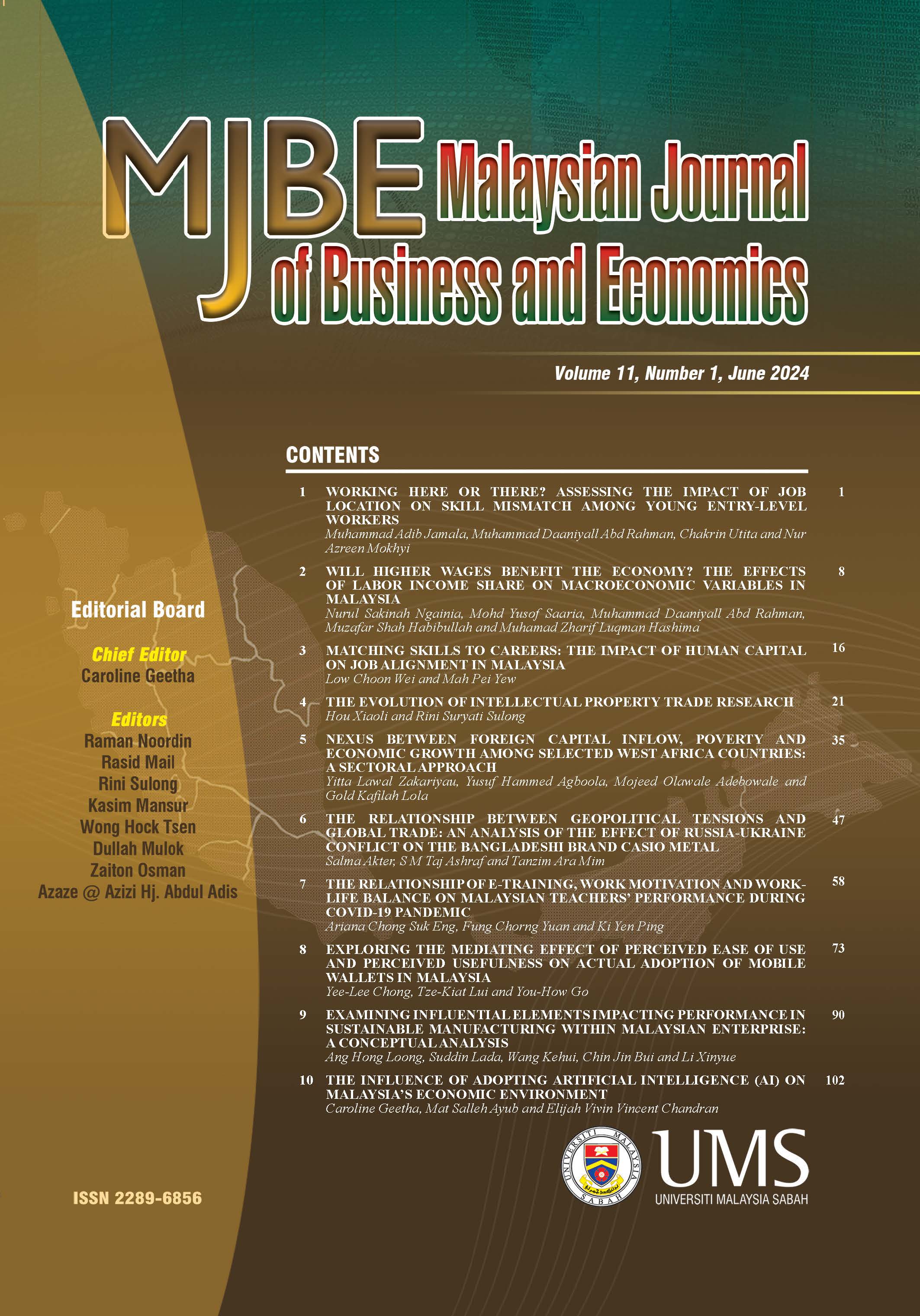MATCHING SKILLS TO CAREERS: THE IMPACT OF HUMAN CAPITAL ON JOB ALIGNMENT IN MALAYSIA
DOI:
https://doi.org/10.51200/mjbe.v11i1.5288Keywords:
job mismatch, human capital, work experience, educational attainment, MalaysiaAbstract
This study examines the impact of human capital factors on job-matching outcomes among Malaysian employees, emphasizing the roles of work experience and educational attainment. Utilizing a logistic regression model, the analysis reveals that both work experience and tertiary education significantly reduce the likelihood of job mismatches. The findings highlight the importance of employers offering adequate rewards, recognition, promotion opportunities, and work-life balance to enhance job satisfaction and retain employees. Additionally, the study underscores the critical role of tertiary education in preparing employees for the evolving demands of the Fourth Industrial Revolution (IR4.0). Despite its contributions, the study acknowledges a limitation in not capturing the specific educational programs studied by employees, suggesting this as a direction for future research.
References
Azalea Azuar (2022). Job market is facing mismatch of talents rather than unemployment. The Malaysian Reserve. https://themalaysianreserve.com/2022/08/11/job-market-is-facing-mismatch-of-talents-rather-than-unemployment/.
Department of Statistics Malaysia (2022). Labour Force Statistics Report Q3 2022. Putrajaya.
Har, W. M., Kee, X. N., Lee, H. S., & Low, C. W. (2022). Green Economy and Good Governance Towards Income Equality: A Quantile
Analysis. Journal of Sustainability Science and Management, 17(9), 62-74.
Kim, S. J., & Choi, S. O. (2018). The effects of job mismatch on pay, job satisfaction, and performance. Journal of Open Innovation: Technology, Market, and Complexity, 4(4), 49. http://dx.doi.org/10.3390/joitmc40400495.
Lee, W. K. (2022). Cover Story: Mismatch in the job market. The Edge Malaysia. https://theedgemalaysia.com/article/cover-story-mismatch-job-market.
Mateos-Romero, L., & Salinas-Jiménez, M. D. M. (2018). Labor mismatches: Effects on wages and on job satisfaction in 17 OECD countries. Social Indicators Research, 140, 369-391. http://10.1007/s11205-017-1830-y.
Ministry of Higher Education (2022). Graduates Statistics 2021. Putrajaya.
Sweetland, S. R. (1996). Human capital theory: Foundations of a field of inquiry. Review of educational research, 66(3), 341-359.
Veselinovic, L., Mangafic, J., & Turulja, L. (2020). The effect of education-job mismatch on net income: evidence from a developing country. Economic research-Ekonomska istraživanja, 33(1), 2648-2669. https://doi.org/10.1080/1331677X.2020.1723427.
Zhu, R. (2014). The impact of major–job mismatch on college graduates' early career earnings: Evidence from China. Education Economics, 22(5), 511-528. https://doi.org/10.1080/09645292.2012.659009.
Downloads
Published
Versions
- 30-06-2024 (2)
- 30-06-2024 (1)
How to Cite
Issue
Section
License

CCBY (Attribution)
https://creativecommons.org/licenses/by/4.0/
© Universiti Malaysia Sabah 2025
All rights reserved. No part of this publication may be reproduced, distributed, stored in a database or retrieval system, or transmitted, in any form or by any means, electronic, mechanical, graphic, recording or otherwise, without the prior written permission of Universiti Malaysia Sabah Press, except as permitted by Act 332, Malaysian Copyright Act of 1987. Permission of rights is subjected to the journal.









